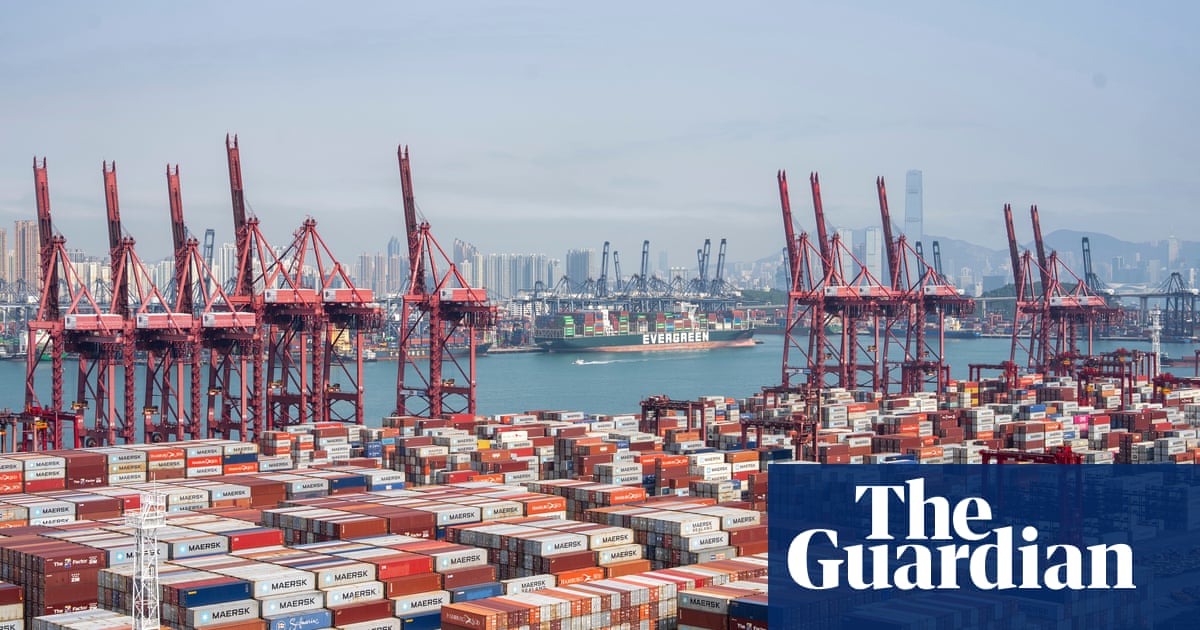Record NHS waiting lists. Flatlining living standards. Rising levels of long-term sickness. The dire state of the public finances. The list of problems inherited from the Conservatives by Keir Starmer is long, but near the top is how to respond to record levels of net migration.
According to official estimates released last month, the past three years have seen almost 2.4 million more people arrive in the UK than have left. Over the centuries, inward migration has been a feature of this country’s history, but the speed and scale of the recent increases are new. In the 1960s and 1970s, emigration tended to be higher than immigration and it has only been in the past quarter of a century that net migration began its upward trend. By way of comparison, net migration in the three years leading up the Brexit vote in 2016 stood at 865,000.
To be sure, there have been one-off factors at play in recent years – refugees from Ukraine and Hong Kong, for example – that have inflated the figures. Net migration also fell in the latest year – from 906,000 to 728,000 and should continue falling. Even so, the Office for Budget Responsibility expects net migration to average 350,000 a year over the next five years.
The case for a more liberal approach is that the UK needs migrant workers. It has a declining birthrate and a large pool of working-age adults who are long-term sick. Large chunks of the economy would have trouble functioning without foreign-born workers. The business model of many hospitality businesses and universities would collapse without them.
Starmer has pledged to reduce the economy’s dependency on foreign workers, yet he will need them if he is to have any hope of hitting the government’s target of building 1.5m new homes in England in the current parliament. The construction industry says an additional 251,000 skilled workers will be required in the next five years and there simply aren’t enough UK-born plumbers, bricklayers and electricians to meet the expected demand.
The same applies to the target that 92% of patients in England should be waiting no longer than 18 weeks for elective treatment. There is not the time to train more domestic doctors and nurses, so without the NHS being able to recruit from overseas, waiting lists will not come down as planned.
Yet one reason the UK needs more homes is that the population is rising – in large part due to high levels of net migration. In the past two years, net migration has been equivalent to the combined populations of Liverpool and Sheffield. That is going to make the housing crisis worse, as well as putting added strain on public services.
Nor can it be said that high levels of net migration have made Britain a markedly more prosperous country. The overall level of national output – or gross domestic product – is higher than it otherwise would have been but GDP per head is only slightly higher now than it was at the time of the 2008 global financial crisis.
Easy access to foreign labour may well have discouraged private businesses from investing in new productivity-enhancing kit. It has certainly allowed governments to ignore worrying long-term trends in ill health and to fund social care on the cheap. Migration is therefore a complex issue. Would the UK economy suffer if net migration was reduced to zero? Clearly it would. Is the current level of net migration sustainable? Clearly not either. Is there a long-term strategy to train up the domestic workforce so that the UK no longer has to poach medical and care staff from Nigeria and Zimbabwe? No, but there needs to be one because the public’s patience with politicians is wearing thin.
It is because migration is so complex and contentious that those who highlight the possible downsides of migration need to have their voices heard. As the case of Steve Fothergill shows, this is not always easy. Back in October, Fothergill, an economics professor at Sheffield Hallam University, sent me a paper on the impact of migration on the labour markets of the old industrial heartlands of England and Wales.
Fothergill has spent most of his career studying what has happened to those parts of the UK at the sharp end of the deindustrialisation of the 1980s. It would be hard to think of an economist who knows more about what is really going on in what were once thriving pit villages than he does. The paper looked at what had happened to employment in the old industrial communities between 2011 and 2021 and found that on average 40% of the new jobs had gone to non-UK citizens.
Fothergill provided some suggestions as to why employers might prefer to employ non-UK workers and said the fact that only 60% of the net new jobs were going to locally born people was not a great return on the regeneration efforts of recent years. Which it clearly isn’t. My view was that the research was a serious piece of work and interesting enough to be the subject of a column, yet within days of the piece appearing, Fothergill was told his part-time contract was being terminated. He sees the decision as an attempt to gag him and says the university was less interested in objective research than in “peddling acceptable messages”. The university says the decision was taken to help ease financial pressures. “Sheffield Hallam University takes its responsibility to protect and promote both free speech and academic freedom seriously. At no point was there any attempt to suppress the research project or its findings,” it said in a statement.
Yet Fothergill has been at the university since it was founded in 1992 and his work has brought in millions of pounds for the institution over more than three decades. His report was run past some eminent experts in his field. If the university didn’t want to hear this, then that would be both wrong and plain daft. Academia is absolutely the right place to have a measured debate about the pros and cons of migration. That debate needs to start with a basic premise: not everyone worried about the level of migration is a bigot.
Indeed, the list of those concerned starts at the top with the prime minister, who said that the latest figures were “off the scale”. Starmer is right about that. If the OBR is correct, by the end of this parliament migration will have boosted the UK’s population by 4 million in just eight years. The idea that this can happen without economic effects, without political ramifications and without the public noticing is for the birds.
-
Larry Elliott is a Guardian columnist

.png) 3 months ago
33
3 months ago
33













































